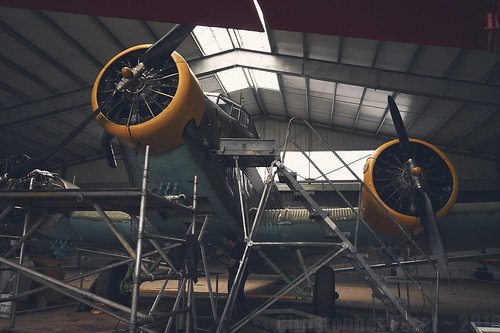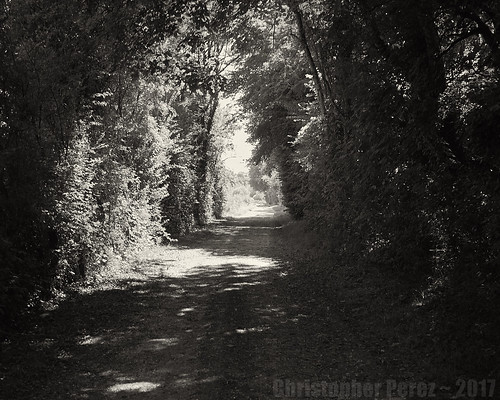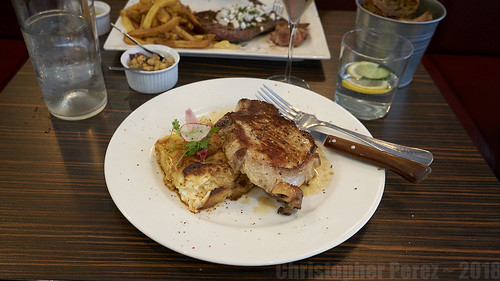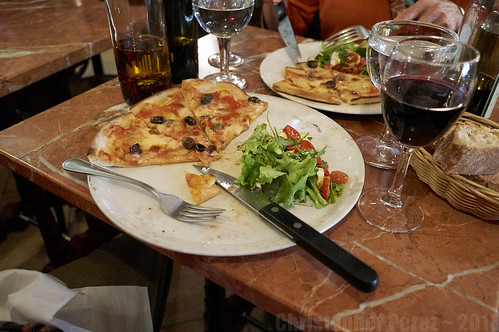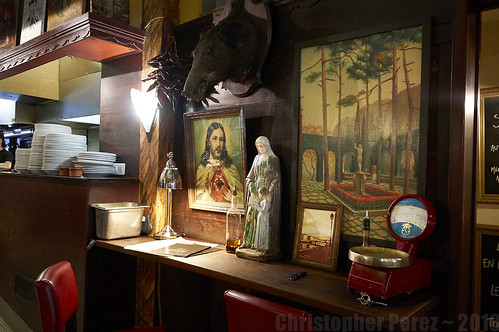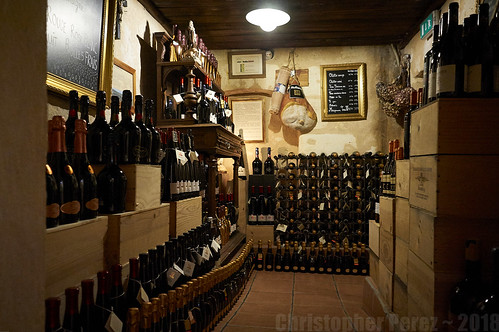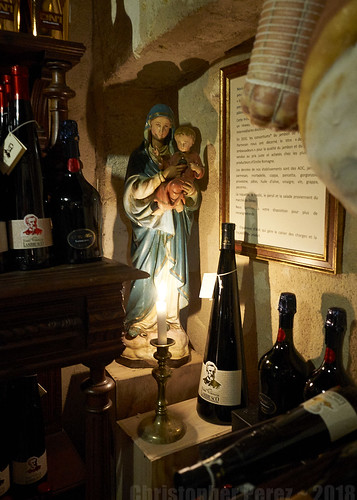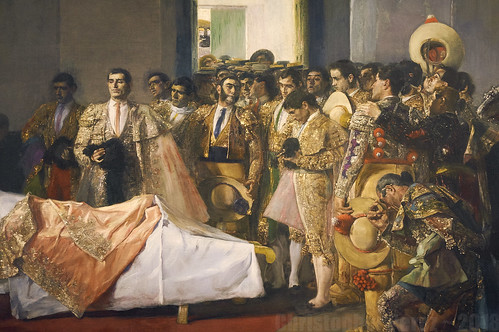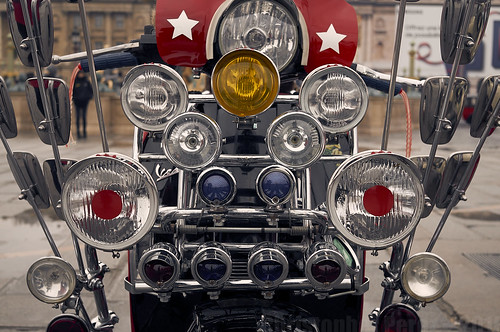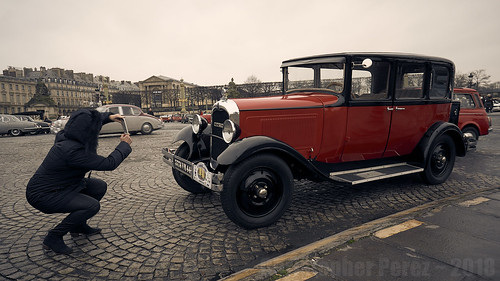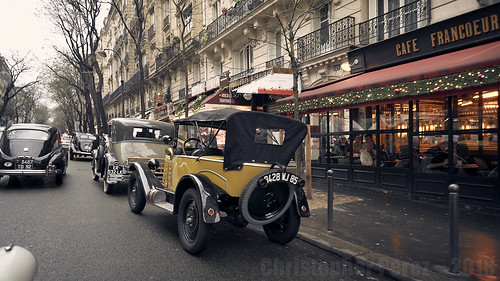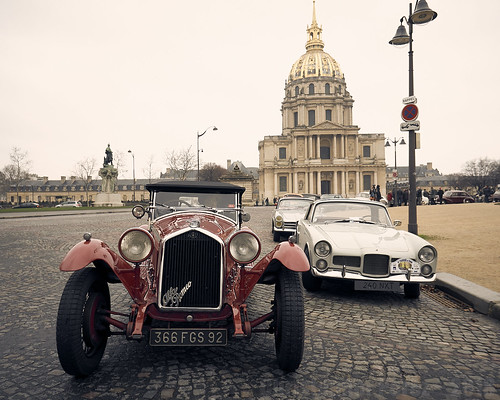We are fast upon the celebrations of All Hallows Eve.
Having lived here for going on a mere 7 years we've picked up a thing or two about what's happened over the centuries and I feel I could cover the delicate subject of perfume shops, les halles, 2 million dead people, the bankruptcy of the French monarchy, and la danse macabre.
People are born and people die. That's life, right?
So what to do with all those who died? Well, some places in the Orient they turn the dead bodies over to vultures (Tibet). In other places the dead are burned and the ashes are sent downstream (India). In yet other places the heads of the dead are preserved and worn as one might a big piece of jewelry (Borneo).
In the Occidental west we tend to put dead people in the ground. We know this has been going on for a very long time as we still dig up a rather old dead body or two every now and then out in the peaty bogs of England.
The French are no different. During the 12th century a cemetery smack-dab in the middle of Paris was enlarged to accommodate a few more dearly departed soul's remains. It was known at the time as Campeaux. Soon it was call the Cimetière des Saints-Innocents.
Over the ensuing 500 or so years, more than a few people were buried there. A charnel house had been built where bodies were, in some cases, processed. The area attracted prostitutes, a large food market, perfumeries and other life-saving businesses sprouted up around the cemetery. La danse macabre was performed.
Over time this meant the area would become a rather meaty mixture of things. One could be baptised (at the church), buy food for the day, do a little danse, get happy doing the bunga-bunga with the opposite sex, die, and be buried, all within the same small quartier of town.
Things were getting grim. The perfumeries were having trouble competing with the stench of the dead, and even la danse macabre itself died and was presumably honored before burial. The locals started to agitate to have something done about the cemetery. It held more corpses than it could reasonably contain and things were stinking to High Heaven.
What to do? The answer was left to the soon to be headless dead himself Louis XVI. Being a weak king (even the American Revolutionary Jefferson said the people could have greater cause against other kings as this one hadn't really done much to credibly incite the full-throated revolt of 1789) and wanting to stick yet another finger in the eye of the English he backed the American side during it's revolt of 1776. This was a huge drain on the royal treasury.
To add to the royal financial misery, on September 4, 1780 there was a big storm. The cemetery filled with water which put pressure on the walls leading to the basements of surrounding houses (how they could stand the stench is beyond the belief of this modern mind), which burst the walls, and thus disgorged more than a few dead bodies into the surrounding wine caves. If you know anything about wine you know that dead bodies and wine do not make for a tasty combination.
The king acted. First, the cemetery was shut down. Second, the old Roman limestone quarries were requisitioned. Third, the cemetery was to be cleaned of its contents by sending everyone and their remains to the old quarry that was at the time outside the city limits and well away from sight, smell, and any wine caves that might otherwise be sullied by floating dead bodies. The job would take a year.
The only problem was, the Catholic Church insisted on getting its pound of dead flesh out of the deal.
Each and every chariot of bones hauled out of the old Cimetière des Saints-Innocents was to be headed by a sacred procession, paid handsomely, and some might say paid royally, which they most certainly were, out of the royal treasury. Is it any surprise that the job actually lasted much longer than a year?
In the end, there was no money left to fight the angry citizens who stormed the Bastille. There was no money left to continue supporting the American Revolt. There was no money left to pay lawyers to defend the monarchy. There was no money for cake for anyone. The king and queen of France lost their heads. The monarchy was dead and bankrupt.
The food sellers were happier to have the cemetery moved. Les Halles, aka: the stomach of Paris, since nearly all food coming into the city passed through there, now smelled primarily of food and horse dung (from all the horses that pulled the food laden carts into the city). The prostitutes moved to slightly better conditions by plying their trade at les Halles. The Paris Catacombs opened for business south of town and became what is even today a rather popular tourist destination.
So what's all this about la danse macabre? It turns out that as the cemetery was being cleaned out, the charnel house walls that had been painted with scenes of la danse were revealed. The paintings had for centuries been covered by the many stacks of dead bodies.
If you visit the catacombs, keep an eye open for yellow colored bones. Those would be the dearly departed souls who suffered from cholera. Cimetière des Saints-Innocents must have been a truly ghastly place.
Having lived here for going on a mere 7 years we've picked up a thing or two about what's happened over the centuries and I feel I could cover the delicate subject of perfume shops, les halles, 2 million dead people, the bankruptcy of the French monarchy, and la danse macabre.
People are born and people die. That's life, right?
So what to do with all those who died? Well, some places in the Orient they turn the dead bodies over to vultures (Tibet). In other places the dead are burned and the ashes are sent downstream (India). In yet other places the heads of the dead are preserved and worn as one might a big piece of jewelry (Borneo).
In the Occidental west we tend to put dead people in the ground. We know this has been going on for a very long time as we still dig up a rather old dead body or two every now and then out in the peaty bogs of England.
The French are no different. During the 12th century a cemetery smack-dab in the middle of Paris was enlarged to accommodate a few more dearly departed soul's remains. It was known at the time as Campeaux. Soon it was call the Cimetière des Saints-Innocents.
Over the ensuing 500 or so years, more than a few people were buried there. A charnel house had been built where bodies were, in some cases, processed. The area attracted prostitutes, a large food market, perfumeries and other life-saving businesses sprouted up around the cemetery. La danse macabre was performed.
Over time this meant the area would become a rather meaty mixture of things. One could be baptised (at the church), buy food for the day, do a little danse, get happy doing the bunga-bunga with the opposite sex, die, and be buried, all within the same small quartier of town.
Things were getting grim. The perfumeries were having trouble competing with the stench of the dead, and even la danse macabre itself died and was presumably honored before burial. The locals started to agitate to have something done about the cemetery. It held more corpses than it could reasonably contain and things were stinking to High Heaven.
What to do? The answer was left to the soon to be headless dead himself Louis XVI. Being a weak king (even the American Revolutionary Jefferson said the people could have greater cause against other kings as this one hadn't really done much to credibly incite the full-throated revolt of 1789) and wanting to stick yet another finger in the eye of the English he backed the American side during it's revolt of 1776. This was a huge drain on the royal treasury.
To add to the royal financial misery, on September 4, 1780 there was a big storm. The cemetery filled with water which put pressure on the walls leading to the basements of surrounding houses (how they could stand the stench is beyond the belief of this modern mind), which burst the walls, and thus disgorged more than a few dead bodies into the surrounding wine caves. If you know anything about wine you know that dead bodies and wine do not make for a tasty combination.
The king acted. First, the cemetery was shut down. Second, the old Roman limestone quarries were requisitioned. Third, the cemetery was to be cleaned of its contents by sending everyone and their remains to the old quarry that was at the time outside the city limits and well away from sight, smell, and any wine caves that might otherwise be sullied by floating dead bodies. The job would take a year.
The only problem was, the Catholic Church insisted on getting its pound of dead flesh out of the deal.
Each and every chariot of bones hauled out of the old Cimetière des Saints-Innocents was to be headed by a sacred procession, paid handsomely, and some might say paid royally, which they most certainly were, out of the royal treasury. Is it any surprise that the job actually lasted much longer than a year?
In the end, there was no money left to fight the angry citizens who stormed the Bastille. There was no money left to continue supporting the American Revolt. There was no money left to pay lawyers to defend the monarchy. There was no money for cake for anyone. The king and queen of France lost their heads. The monarchy was dead and bankrupt.
The food sellers were happier to have the cemetery moved. Les Halles, aka: the stomach of Paris, since nearly all food coming into the city passed through there, now smelled primarily of food and horse dung (from all the horses that pulled the food laden carts into the city). The prostitutes moved to slightly better conditions by plying their trade at les Halles. The Paris Catacombs opened for business south of town and became what is even today a rather popular tourist destination.
So what's all this about la danse macabre? It turns out that as the cemetery was being cleaned out, the charnel house walls that had been painted with scenes of la danse were revealed. The paintings had for centuries been covered by the many stacks of dead bodies.
If you visit the catacombs, keep an eye open for yellow colored bones. Those would be the dearly departed souls who suffered from cholera. Cimetière des Saints-Innocents must have been a truly ghastly place.
